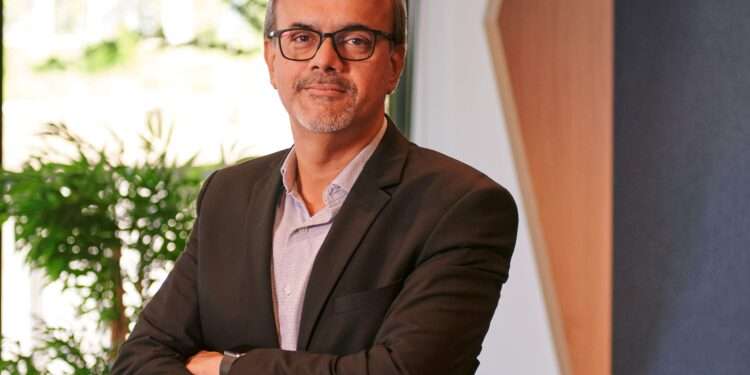Crime and violence overtakes inflation as top global concern, while unemployment worries decline among urban Indians
Mumbai: The September wave of the Ipsos What Worries the World global survey shows optimism most buoyant in global south – in the markets of Singapore (82%), Indonesia (65%), India (65%), Malaysia (62%), Mexico (59%), Argentina (52%), Thailand (50%) and Australia (42%), with their citizens believing, their country is moving in the right direction. Interestingly, India was ranked third in the overall pecking order.
The markets most pessimistic about the future were Peru (14%), France (22%), Hungary (23%) South Korea (23%) and Türkiye (23%). Further, only 4 in 10 global citizens were upbeat about the future.
Ipsos’ What Worries the World survey tracks public opinion on the most important social and political issues across 29 countries today, drawing on over
ten years of data to place the latest scores in context.
“Global South including India is the axis of growth and optimism, while some of the other markets are witnessing either economic slowdown or are impacted by the wars. Though all markets are impacted by the war, as we live in a global village, but some markets have reoriented their strategies to pump in growth by forging newer economic alliances to offset the impact of global crisis. PM Modi for instance has been visiting newer markets to enhance mutual trade ties with Saudi Arabia, Singapore, UAE, Brunei. India signed a major pact for semi conductors with the US and Singapore,” stated Amit Adarkar, CEO, Ipsos India.
Worries of Indians and global citizens
The survey examines the top issues faced by markets. India’s top two worries of inflation and unemployment have witnessed further decline. But the laundery list of worries showed some of these other areas of education, corruption and crime needing action.
Global citizens were most worried about crime and violence with alarming levels of violence showing no signs of abating as the war in Gaza has spread to Iran and Lebanon, and Russia-Ukraine skirmishes continue. Inflation has a worry has receded and has moved to the 2nd spot. Poverty, unemployment and corruption being the other prominent global worries.
Methodology
| The 29-country Global Advisor survey was conducted between August 23rd 2024 and September 6th 2024 via the Ipsos Online Panel system among 24,720 adults aged 18-74 in Canada, Israel, Malaysia, South Africa, Türkiye and the United States, 20-74 in Indonesia and Thailand, 21-74 in Singapore, and 16-74 in all other nations.The “Global Country Average” reflects the average result for all the countries where the survey was conducted. It has not been adjusted to the population size of each country and is not intended to suggest a total result.” The sample consists of approximately 1000+ individuals in each of Australia, Belgium, Brazil, Canada, France, Germany, Great Britain, Italy, Japan, Spain, Sweden, and the US, and approximately 500+ individuals in each of Argentina, Chile, Colombia, Hungary, Indonesia, Israel, Malaysia, Mexico, the Netherlands, Peru, Poland, Singapore, South Africa, South Korea, Thailand and Türkiye.The sample in India consists of approximately 2,200 individuals, of whom approximately 1,800 were interviewed faceto-face and 400 were interviewed online. The samples in Argentina, Australia, Belgium, Canada, France, Germany, Great Britain, Hungary, Italy, Japan, the Netherlands, Poland, South Korea, Spain, Sweden, and the US can be taken as representative of these countries’ general adult population under the age of 75. The samples in Brazil, Chile, Colombia, India, Indonesia, Malaysia, Mexico, Peru, Singapore, South Africa, Thailand and Türkiye are more urban, more educated, and/or more affluent than the general population.The survey results for these markets should be viewed as reflecting the views of the more “connected” segment of these populations. India’s sample represents a large subset of its urban population — social economic classes A, B and C in metros and tier 1-3 town classes across all four zones. Weighting has been employed to balance demographics and ensure that the sample’s composition reflects that of the adult population according to the most recent census data.The precision of Ipsos online polls are calculated using a credibility interval with a poll of 1,000 accurate to +/- 3.5 percentage points and of 500 accurate to +/- 5.0 percentage points. For more information on the Ipsos use of credibility intervals, please visit the Ipsos website. Where results do not sum to 100 or the ‘difference’ appears to be +/-1 more/less than the actual, this may be due to rounding, multiple responses, or the exclusion of don’t knows or not stated responses The publication of these findings abides by local rules and regulations.The sample in India consists of approximately 2,200 individuals, of whom 1,800 were interviewed face-to-face and 400 were interviewed online using the IndiaBus platform. |






























